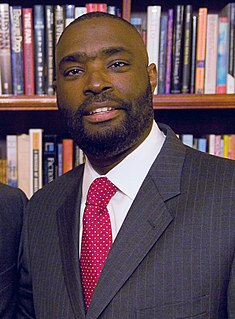A Quote by Charlotte Bronte
They will both be happy, and I do not grudge them their bliss; but I groan under my own misery: some of my suffering is very acute. Truly, I ought not to have been born: they should have smothered me at first cry.
Related Quotes
Philosophy can add to our happiness in no other manner but by diminishing our misery; it should not pretend to increase our present stock, but make us economists of what we are possessed of. Happy were we all born philosophers; all born with a talent of thus dissipating our own cares by spreading them upon all mankind.
It's lonely to say goodbye. Very lonely. Please. Cry with me. Maybe there's nothing we can do about this. But at least, for now...cry with me. Like your entire body...is screaming at the sky. Like it's raging against the world. I lost something. And I don't have a single guarantee. The fear of living in this world again after that...I have only a shred of hope to sustain me. So I want you at least...to cry. Cry. Cry with me. Like the day you were first born into this world.
Who will cry for the little boy, lost and all alone?
Who will cry for the little boy, abandoned without his own?
Who will cry for the little boy? He cried himself to sleep.
Who will cry for the little boy? He never had for keeps.
Who will cry for the little boy? He walked the burning sand.
Who will cry for the little boy? The boy inside the man.
Who will cry for the little boy? Who knows well hurt and pain.
Who will cry for the little boy? He died and died again.
Who will cry for the little boy? A good boy he tried to be.
Who will cry for the little boy, who cries inside of me?
It is a curious and painful fact that almost all the completely futile treatments that have been believed in during the long history of medical folly have been such as caused acute suffering to the patient. When anesthetics were discovered, pious people considered them an attempt to evade the will of God. It was pointed out, however, that when God extracted Adam's rib He put him into a deep sleep. This proved that anesthetics are all right for men; women, however, ought to suffer, because of the curse of Eve.
Both good and evil, when they are full grown, become retrospective...That is what mortals misunderstand. They say of some temporary suffering, 'No future bliss can make up for it,' not knowing that Heaven, once attained, will work backwards and turn even that agony into a glory. And of some sinful pleasure they say 'Let me but have this and I'll take the consequences': little dreaming how damnation will spread back and back into their past and contaminate the pleasure of the sin.
...Bliss is not something to be got. On the other hand you are always Bliss. This desire [for Bliss] is born of the sense of incompleteness. To whom is this sense of incompleteness? Enquire. In deep sleep you were blissful. Now you are not so. What has interposed between that Bliss and this non-bliss? It is the ego. Seek its source and find you are Bliss.
True celebration should come from your life, in your life. And true celebration cannot be according to the calendar, that on the first of November you will celebrate. Strange, the whole year you are miserable and on the first of November suddenly you come out of misery, dancing. Either, the misery is false, or the first of November is false; both cannot be true. And once the first of November has gone, you are back in your dark hole, everybody in his misery, everybody in his anxiety.
Surely if He would not spare His own Son one stroke, one tear, one groan, one sigh, one circumstance of misery, it can never be imagined that ever He should, after this, deny or withhold from His people, for whose sakes all this was suffered, any mercies, any comforts, any privilege, spiritual or temporal, which is good for them.
We have become terribly vulnerable, not because we suffer but because we have separated ourselves from each other. A patient once told me that he had tried to ignore his own suffering and the suffering of other people because he had wanted to be happy. Yet becoming numb to suffering will not make us happy. The part in us that feels suffering is the same as the part that feels joy.
After every happiness comes misery; they may be far apart or near. The more advanced the soul, the more quickly does one follow the other. What we want is neither happiness nor misery. Both make us forget our true nature; both are chains-one iron, one gold; behind both is the Atman, who knows neither happiness nor misery. These are states, and states must ever change; but the nature of the Atman is bliss, peace, unchanging. We have not to get it, we have it; only wash away the dross and see it.





































